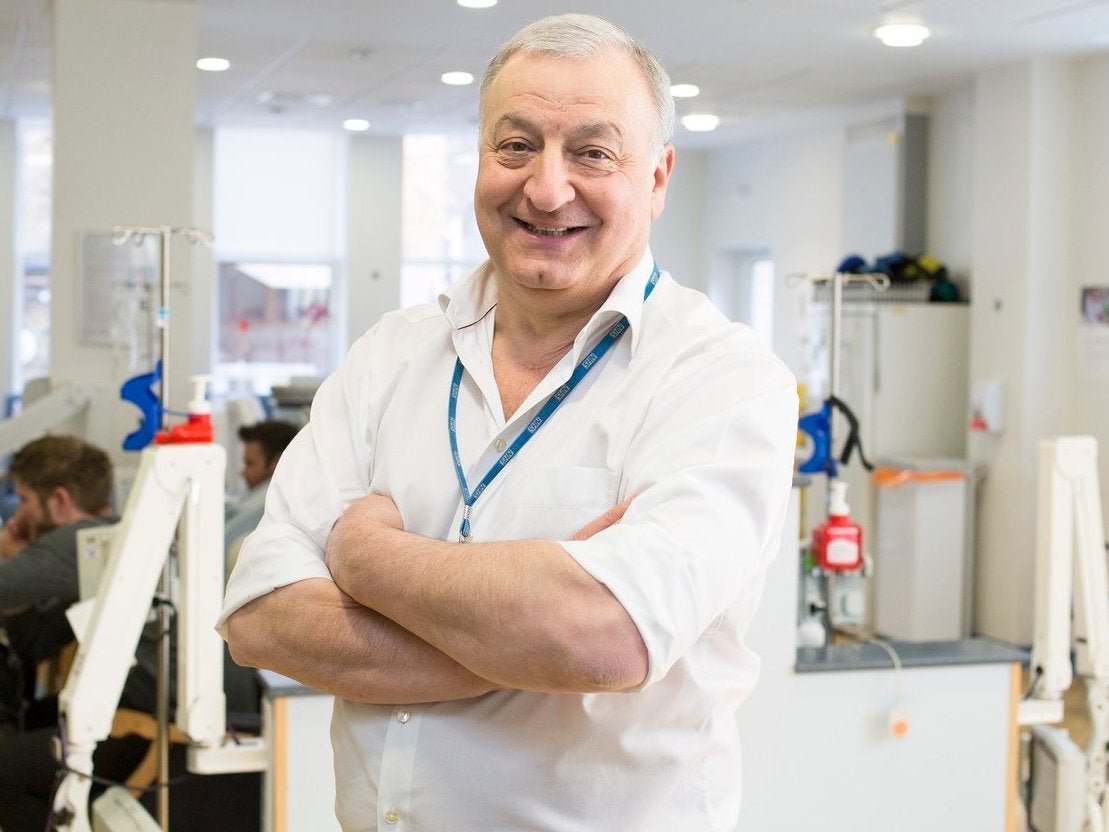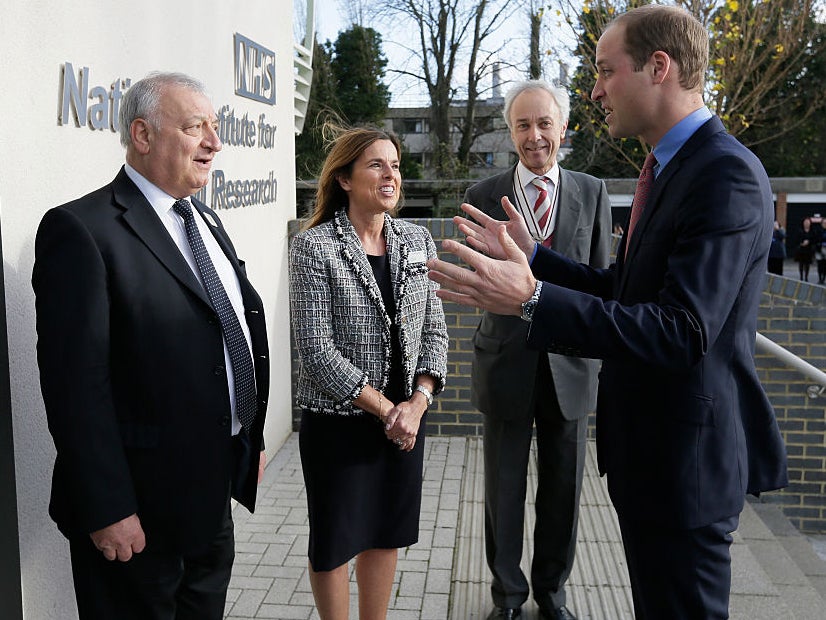Martin Gore remembered: Cancer expert who forged an international reputation over 30 years at the Royal Marsden
As medical director of the hospital for 10 years from 2006, he was keen for a constant dialogue between doctors treating patients and their colleagues in labs

For three decades at the Royal Marsden Hospital in London, Martin Gore was the friendly and approachable face to patients who gained an international reputation as one of the pioneers of modern oncology.
Gore, who has died aged 67 after a routine yellow fever jab, was the hospital’s medical director until he stepped down in 2016, and was a leading specialist in melanoma, ovarian and renal cancers. After the death in 2009 of reality TV star Jade Goody, who was one of his patients, he called for the age for screening cervical cancer to be lowered from 25 to 20.

The professor was an advocate for research at the coal face of medical practice and argued that intertwining research responsibilities with patient care was both perfectly possible and crucial to gaining ground on the disease.
His 40-year career was marked by pivotal contributions to research largely linked to the development of therapeutics. Gore was a driving force behind the introduction of immunotherapy and helped to run landmark trials – immunotherapy has been hailed as one of the biggest changes in cancer treatment over the past two decades.
He was also a professor in cancer medicine at the Institute of Cancer Research.
In addition to his vast medical knowledge, Gore was also able to see the person in patients, getting to know them as individuals and treating them with compassion and kindness.
During his time as a GP in Deptford during the 1970s, he learned that the “medical” part of medicine was only “half the story for many patients”. As he once put it, it was “about treating the person, and not just their illness”.
Former Independent editor Simon Kelner testified to this when he was treated by Gore in 2014. Kelner wrote: “I have spent more time in Professor Gore’s office discussing Fulham FC’s woes than I have analysing the results of my latest scan, for the simple reason that he knows what his patients want. They just want to know whether they’re clear or not, and this he can deliver in a straightforward sentence. It’s a binary thing.”
Born in 1951, Gore went to school at Bradfield College, Berkshire, and completed his medical training at St Bartholomew’s Medical College.
Having qualifyied as a doctor in 1974, he joined the Royal Marsden in 1978.
Three years later he was awarded a PhD at the Ludwig Institute for Cancer Research in Oxford for his work on breast cancer.
In 1988, Gore was appointed as a senior lecturer at the Institute of Cancer Research, while also becoming a consultant at the Royal Marsden.
In 2006 he was named the co-patron of the Rarer Cancers Foundation.
In 2014, Gore became the first non-US doctor to deliver the Eugene P Schonfeld Memorial Lecture, while also receiving the Royal Marsden’s lifetime achievement award from the Duke of Cambridge that same year. Two years later he was made a CBE for services to oncology.
Most recently, he was the co-chair of an independent review of breast screening, which reported in December that nearly 500,000 women were forced to endure needless anxiety after then-health secretary Jeremy Hunt told the House of Commons, based on incorrect advice, that NHS breast screening errors had led to hundreds of deaths.
In 2013, Gore also led an inquiry into the care of Alice Mason – a two-year-old who had undergone successful treatment for a brain tumour but died two months later after developing fluid on the brain.
He found that there were more than a dozen failings by medical staff at both the Royal Marsden and Kingston Hospital in Surrey.
Gore is survived by his wife Pauline Wren, whom he married in 1979, and their four children.
During a long and decorated career, Gore published more than 550 articles and edited 10 medical textbooks.
Professor Martin Eric Gore, oncologist, born 18 February 1951, died 10 January 2019
Join our commenting forum
Join thought-provoking conversations, follow other Independent readers and see their replies
Comments
Bookmark popover
Removed from bookmarks